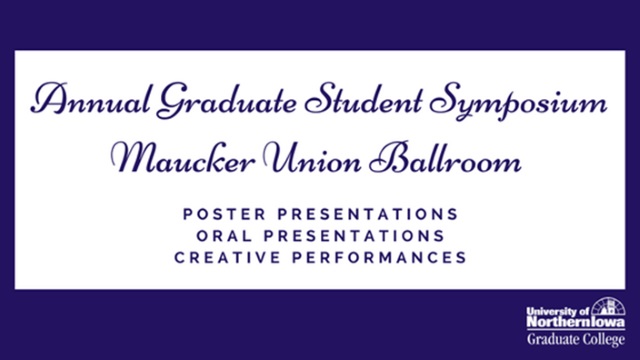
Complete Schedule
Iowa Rural School Memoirs and Identity
Presentation Type
Oral Presentation (Electronic Copy Not Available)
Keywords
Rural schools--Iowa--Biography; Iowa--Rural conditions;
Abstract
Iowa’s small rural schools were a crucial part of the state’s education system for over a century, being phased out by the 1950s in favor of consolidation. These small schools were a major part of Iowa life, often serving not only as a site of education but as a social center of the area with meetings and community events. In the late 1980s and continuing into the 2000s, we see former pupils and former teachers writing memoirs about their experience in one-room schools. However, the experiences of the two groups are different: teachers had to deal with bureaucracy, lesson-planning, and other factors that students did not.
From a historiographical perspective, this body of memoirs in the UNI Museums reference collection from former students and teachers provides an opportunity to investigate the construction of rural and Midwestern identity in the post-war era. This is especially true in light of when most of the memoirs are written: after the 1980s Farm Crisis, when rural Midwestern identities and economies were challenged. A selection of ten memoirs from students and teachers, ranging in publication date from the 1920s to the 2000s, allows one to compare how these narratives intersect and diverge over the 20th century.
Start Date
3-4-2018 1:00 PM
End Date
3-4-2018 4:00 PM
Faculty Advisor
Barbara Cutter
Department
Department of History
Copyright
©2018 Brian Jesteadt
Embargo Date
3-30-2018
Iowa Rural School Memoirs and Identity
Iowa’s small rural schools were a crucial part of the state’s education system for over a century, being phased out by the 1950s in favor of consolidation. These small schools were a major part of Iowa life, often serving not only as a site of education but as a social center of the area with meetings and community events. In the late 1980s and continuing into the 2000s, we see former pupils and former teachers writing memoirs about their experience in one-room schools. However, the experiences of the two groups are different: teachers had to deal with bureaucracy, lesson-planning, and other factors that students did not.
From a historiographical perspective, this body of memoirs in the UNI Museums reference collection from former students and teachers provides an opportunity to investigate the construction of rural and Midwestern identity in the post-war era. This is especially true in light of when most of the memoirs are written: after the 1980s Farm Crisis, when rural Midwestern identities and economies were challenged. A selection of ten memoirs from students and teachers, ranging in publication date from the 1920s to the 2000s, allows one to compare how these narratives intersect and diverge over the 20th century.


